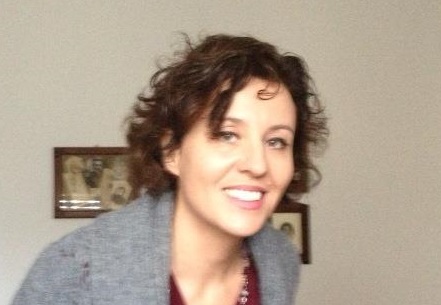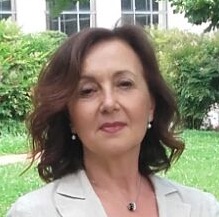Studying at the University of Verona
Here you can find information on the organisational aspects of the Programme, lecture timetables, learning activities and useful contact details for your time at the University, from enrolment to graduation.
Academic calendar
The academic calendar shows the deadlines and scheduled events that are relevant to students, teaching and technical-administrative staff of the University. Public holidays and University closures are also indicated. The academic year normally begins on 1 October each year and ends on 30 September of the following year.
Course calendar
The Academic Calendar sets out the degree programme lecture and exam timetables, as well as the relevant university closure dates..
| Period | From | To |
|---|---|---|
| Sem. IA | Oct 1, 2014 | Nov 16, 2014 |
| Sem. IB | Nov 17, 2014 | Jan 18, 2015 |
| Sem. IIA | Feb 23, 2015 | Apr 19, 2015 |
| Sem. IIB | Apr 20, 2015 | Jun 7, 2015 |
| Session | From | To |
|---|---|---|
| Sessione Estiva (Esami sospesi dal 14 al 16 luglio) | Jun 8, 2015 | Jul 31, 2015 |
| Sessione Autunnale | Sep 1, 2015 | Sep 30, 2015 |
| Sessione Invernale | Jan 18, 2016 | Feb 21, 2016 |
| Session | From | To |
|---|---|---|
| Sessione Estiva | Jul 14, 2015 | Jul 16, 2015 |
| Sessione Autunnale | Nov 10, 2015 | Nov 12, 2015 |
| Sessione Invernale | Mar 14, 2016 | Mar 17, 2016 |
| Period | From | To |
|---|---|---|
| Festa di Ognissanti | Nov 1, 2014 | Nov 1, 2014 |
| Festa dell'Immacolata Concezione | Dec 8, 2014 | Dec 8, 2014 |
| Vacanze Natalizie | Dec 22, 2014 | Jan 6, 2015 |
| Vacanze Pasquali | Apr 2, 2015 | Apr 7, 2015 |
| Festa della Liberazione | Apr 25, 2015 | Apr 25, 2015 |
| Festa dei lavoratori | May 1, 2015 | May 1, 2015 |
| Festa del S. Patrono S. Zeno | May 21, 2015 | May 21, 2015 |
| Festa della Repubblica | Jun 2, 2015 | Jun 2, 2015 |
| Vacanze Estive | Aug 10, 2015 | Aug 16, 2015 |
Exam calendar
Exam dates and rounds are managed by the relevant Humanistic Studies Teaching and Student Services Unit.
To view all the exam sessions available, please use the Exam dashboard on ESSE3.
If you forgot your login details or have problems logging in, please contact the relevant IT HelpDesk, or check the login details recovery web page.
Should you have any doubts or questions, please check the Enrollment FAQs
Academic staff
 cristina.bertazzoni@univr.it
cristina.bertazzoni@univr.it
 sonia.claris@univr.it
sonia.claris@univr.it
 laura.fontecedro@univr.it
laura.fontecedro@univr.it

Longo Mario
 mario.longo@univr.it
mario.longo@univr.it
 045 8028393
045 8028393
 elisabetta.madriz@univr.it; elisamadriz@libero.it
elisabetta.madriz@univr.it; elisamadriz@libero.it
 federico.melotto@univr.it; federicomelotto@hotmail.com
federico.melotto@univr.it; federicomelotto@hotmail.com

Migliorati Lorenzo
 lorenzo.migliorati@univr.it
lorenzo.migliorati@univr.it
 045802 8135
045802 8135
 igor.pelgreffi@univr.it
igor.pelgreffi@univr.it
 daniela.princivalle@univr.it
daniela.princivalle@univr.it
 sabrina.tosicambini@univr.it
sabrina.tosicambini@univr.it
Study Plan
The Study Plan includes all modules, teaching and learning activities that each student will need to undertake during their time at the University.
Please select your Study Plan based on your enrollment year.
1° Year
| Modules | Credits | TAF | SSD |
|---|
Cultural Anthropology
Developmental and educational psychology
Sociology and analysis of social dynamics
History of Philosophy
History of Education and Pedagogy
Un insegnamento a sceltaUn insegnamento a scelta2° Year activated in the A.Y. 2015/2016
| Modules | Credits | TAF | SSD |
|---|
Teaching methodology and educational planning
Early Childhood Education
Computer Science and Multimedia
Theories and methods of cultural mediation
Un insegnamento a sceltaSocial and Cultural Geography
Un insegnamento a scelta3° Year activated in the A.Y. 2016/2017
| Modules | Credits | TAF | SSD |
|---|
Un insegnamento a sceltaUn insegnamento a sceltaTheories and techniques of the primary socialization
Un insegnamento a scelta| Modules | Credits | TAF | SSD |
|---|
Cultural Anthropology
Developmental and educational psychology
Sociology and analysis of social dynamics
History of Philosophy
History of Education and Pedagogy
Un insegnamento a sceltaUn insegnamento a scelta| Modules | Credits | TAF | SSD |
|---|
Teaching methodology and educational planning
Early Childhood Education
Computer Science and Multimedia
Theories and methods of cultural mediation
Un insegnamento a sceltaSocial and Cultural Geography
Un insegnamento a scelta| Modules | Credits | TAF | SSD |
|---|
Un insegnamento a sceltaUn insegnamento a sceltaTheories and techniques of the primary socialization
Un insegnamento a scelta| Modules | Credits | TAF | SSD |
|---|
Legend | Type of training activity (TTA)
TAF (Type of Educational Activity) All courses and activities are classified into different types of educational activities, indicated by a letter.
Early Childhood Education [Cognomi A-L] (2015/2016)
Teaching code
4S00794
Teacher
Coordinator
Credits
9
Language
Italian
Scientific Disciplinary Sector (SSD)
M-PED/01 - PEDAGOGY, THEORIES OF EDUCATION AND SOCIAL EDUCATION
Period
Sem. IA, Sem. IB
Learning outcomes
The students are expected to achieve the following goals:
− To understand the roots and the main conceptual frames of early childhood education, with a specific focus on care
− To explore the critical points concerning education for children aged from 0 to 6 years starting from the analysis and discussion of one’s own images of child, family, learning, educational relationships during childhood
− To get to know the contemporary Italian and European offer of services for early childhood
− To be able to analyze practices and educational models in early childhood education in a pedagogical perspective
− To be able to design interventions in early childhood education, adapting to the child’s needs and to the specific environment
Program
Course's contents
Care work as a complex cultural practice
Competences and practives in care work
Care in early childhood education settings
Basic knowledge of the United Nations CRC (Convention on the Rights of the Child)
Participatory methods to involve children's perspective in education, work records, evaluation
Texts for the exam:
- Andrea Bobbio, Pedagogia dell’infanzia e cultura dell’educazione, Roma, Carocci, 2013
- Luigina Mortari, Filosofia della cura, Milano, Raffaello Cortina, 2014
- Donata Ripamonti, Paola Tosi, I momenti di cura nei servizi e nelle scuole per l’infanzia, Bergamo, Edizioni Junior
- Alison Clark, Peter Moss, Ascoltare i bambini. L’approccio a mosaico, Bergamo, Edizioni Junior, 2014
- Convention on the Rights of the Child (1989), available also in English on the e-learning space
During the course, if necessary, the teacher will give further documents and references on specific topics. These materials are part of the syllabus and will be available on the e-learning space.
Further references (suggestions - not part of the syllabus)
- Bosi R., Pedagogia al nido, Carocci, Roma, 2002
- Galardini A.L., Crescere al nido, Carocci, Roma, 2003
- Musi E., Invisibili sapienze. Pratiche di cura al nido, Edizioni Junior, Bergamo, 2010
- A. Infantino (a cura di), Pratiche educative nei servizi per l’infanzia, Franco Angeli, 2014
- A. Infantino, Il lavoro educativo con la prima infanzia. Tra progetto pedagogico e scelte organizzative, Junior, Azzano S. Paolo (Bg), 2008.
- P. Braga (a cura di), Gioco, cultura e formazione. Temi e problemi di pedagogia dell’infanzia, edizioni Junior, 2005
- Braga P., Mauri M., Tosi P. (2009) Perché e come osservare nel contesto educativo. Presentazione di alcuni strumenti, Junior, Bergamo.
- F. Caggio, A. Infantino (a cura di), …con bambini e famiglie. Un’esplorazione in luoghi d’infanzia, edizioni Junior, 2008
- A. Infantino (a cura di), Il lavoro educativo con la prima infanzia. Tra progetto pedagogico e scelte organizzative, edizioni Junior, 2008
- S. Mantovani, L. Restuccia Saitta, C. Bove, Attaccamento e inserimento. Stili e storie delle relazioni al nido, Franco Angeli, 2000
Methods
Lectures
Group works on specific topics proposed by the teacher
Individual work on themes and issues emerging from the discussion
Examination Methods
The teacher will verify the students' learning through:
- prospective individual productions (on a voluntary basis)
- a written examination (including multiple choice and open-ended questions)
Type D and Type F activities
Modules not yet included
Career prospects
Module/Programme news
News for students
There you will find information, resources and services useful during your time at the University (Student’s exam record, your study plan on ESSE3, Distance Learning courses, university email account, office forms, administrative procedures, etc.). You can log into MyUnivr with your GIA login details: only in this way will you be able to receive notification of all the notices from your teachers and your secretariat via email and soon also via the Univr app.
Graduation
Documents
| Title | Info File |
|---|---|
|
|
pdf, it, 99 KB, 13/10/23 |
|
|
pdf, it, 101 KB, 10/04/24 |
List of theses and work experience proposals
| theses proposals | Research area |
|---|---|
| Ambienti e contesti di lavoro con minori | Various topics |
| Analisi dei personal network di sostegno | Various topics |
| comunicazioni relative alla tesi | Various topics |
| Il teatro come contesto educativo | Various topics |
| I processi di globalizzazione culturale nella società contemporanea | Various topics |
| La social network analysis applicata allo studio dei contesti educativi | Various topics |
| L'educatore ed i progetti europei | Various topics |
| L'impegno associativo in ambito educativo | Various topics |
| Politiche sociali e contesti educativi | Various topics |
| Progetti di collaborazione con le istituzioni scolastiche | Various topics |
| PROPOSTE TESI AMBITO GEOGRAFICO | Various topics |
| Scuola e capitale sociale | Various topics |
Linguistic training CLA
Gestione carriere
Student mentoring
Practical information for students
Documents
| Title | Info File |
|---|---|
|
|
pdf, it, 325 KB, 02/05/23 |
|
|
pdf, it, 212 KB, 02/05/23 |
|
|
pdf, it, 131 KB, 02/05/23 |
Stage e Tirocini
Le ulteriori attività formative (crediti F) sono interamente coperte dall’attività di tirocinio “indiretto” (1 cfu) da svolgersi nel secondo anno e di tirocinio “diretto” (14 cfu) da svolgersi presso enti convenzionati per un numero complessivo di 15 cfu (375 ore). Chi è iscritta/o al curriculum servizi per l’infanzia è tenuta/o a svolgere il tirocinio presso nidi e servizi per la prima infanzia per almeno il 50% delle ore.
Il tirocinio professionalizzante (375 ore, pari a 15 cfu), è obbligatorio sia nella sua forma diretta che indiretta.
Il tirocinio indiretto, della durata di 25 ore a frequenza obbligatoria al 75%, si svolge in Università per 20 ore e in forma di lavoro individuale per 5 ore e consiste in un accompagnamento iniziale delle/degli studenti da parte dei tutor attraverso un percorso formativo dotandoli di conoscenze e strumenti adeguati a osservare, comprendere e rielaborare criticamente l’esperienza di tirocinio nei servizi educativi e ad affrontare il tirocinio negli enti con metodo e consapevolezza. Il percorso, da attuare in gruppi da 20-25 persone sotto la supervisione di un tutor, risponde alle esigenze costantemente espresse sia dalle/dagli studenti stessi sia dalle parti sociali che dai referenti degli enti convenzionati.
Il tirocinio diretto si propone di raggiungere i seguenti obiettivi:
- fare esperienza diretta di attività professionali, che richiedono un livello di preparazione al lavoro educativo;
- approfondire in particolare il rapporto tra preparazione teorica, acquisita mediante lo studio, ed esperienza pratica, tra mondo del sapere e della cultura e mondo del lavoro e delle professioni;
Al termine del tirocinio diretto lo studente deve presentare una relazione scritta, nella modalità concordata con il tutor accademico.
Nuove Linee Guida per il tirocinio di Scienze dell'educazione.
- Tutte le informazioni in merito agli stage per futuri studenti sono disponibili alla pagina Stage e tirocini.
- Tutte le informazioni in merito agli stage per studenti iscritti sono pubblicate in MyUnivr - come fare per - stage e tirocini.
- Tutte le informazioni in merito agli stage per le aziende sono disponili alla pagina Stage e tirocini per azienze.
Documents
| Title | Info File |
|---|---|
|
|
pdf, it, 302 KB, 16/07/21 |






























